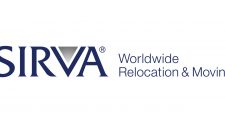The program committee of the Privacy Law Scholars Conference, or PLSC, which took place on May 30 and 31, decided not to seek support from Palantir Technologies, a private American software company specializing in big data analytics, because a “significant minority” of participants in the conference were “uncomfortable” with the sponsorship, according to conference co-chair and UC Berkeley School of Law adjunct professor Chris Hoofnagle.
The PLSC, organized by the Berkeley Center for Law & Technology and the George Washington University Law School, provides a venue for privacy law scholars and practitioners around the world to discuss issues and “foster greater connections between academia and practice,” according to the program website. The program committee received a letter from several academics who requested that the conference reject the sponsorship of Palantir Technologies, a longtime supporter, according to the PLSC’s FAQ page.
The letter said Palantir sells technologies for “tracking, profiling, and prediction to military and law enforcement agencies across the country” and that the company had multiple contracts that provided technology to allow U.S. Immigration and Customs Enforcement, or ICE, to track and target immigrants, refugees and asylum-seekers in an effort to deport them.
“In short, Palantir’s business involves building technologies that support federal immigration enforcement policies to profile and deport immigrants, detain children, prosecute families, and conduct surveillance on low-income communities that suffer disparate impacts of policing,” the letter stated. “At the same time, Palantir is waging a public relations campaign which continually minimizes the company’s role in policing and immigration enforcement.”
In response to the academics’ letter, the PLSC sent a letter back, signed by Hoofnagle, that outlines the conference’s sponsorship policy and that clarifies that sponsors of the PLSC have no influence over the event.
Hoofnagle’s letter said the funding from sponsors enables more academics to participate and that the sponsors that support the conference play no role in selecting the papers discussed or the academics in attendance.
“It is our policy only to accept sponsors that agree to exert no influence or input on the substance of the program,” the PLSC’s sponsorship statement says. “Corporate sponsors of PLSC receive a certain number of invitations for their employees to attend the conference, and they are named in the program and publicity materials as supporters, but they receive nothing else—no slots on the program, no program committee membership, no influence or input on paper selection, and no influence on paper awards.”
Hoofnagle said in an email that the PLSC has a strong sponsorship statement that he thinks meets a “gold standard” for independence and autonomy. He reiterated that sponsors have no influence on programming whatsoever.
Sabrina Dong is the executive news editor. Contact her at [email protected] and follow her on Twitter at @Sabrina_Dong_.















